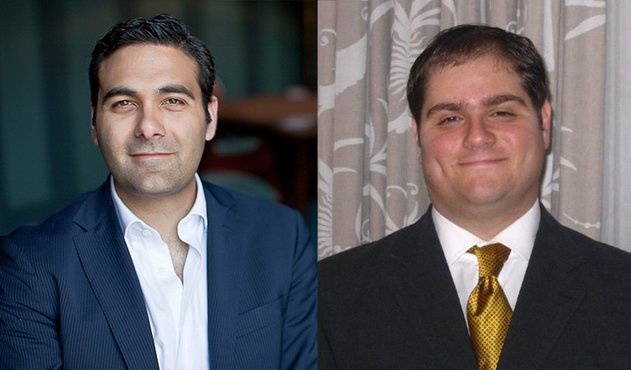News
Notification of Personal Data Breaches: Promoting joint pro-activity in data security
A brief discussion regarding the obligation of Controllers to notify the data subject and supervisory authority in the event of a data breach.

To err is human – to admit it is another matter entirely. Under the General Data Protection Regulation (GDPR), which is to enter into force on the 25th May 2018, it is required that in the event of a breach of data security, a controller notifies its respective supervisory authority of the breach within seventy two hours after having become aware of it (although it is possible to notify after the seventy two hours if the delay can be justified). The GDPR devotes so much attention to this obligation that it also provides a list of information that ought to be included in each notification.
It should suffice to say that in an economic landscape which thrives upon the processing of data, breaches in security are costly because of the resources needed to rectify them, without even considering the controller having their public image potentially tarnished. Yet, under the GDPR, we are on the cusp of a paradigm shift where controllers are required to make haste to notify the authorities of such an occurrence. The truth is that no controller wants to make public the fact that the trust of its data subjects has been violated, even if this was due to a third party. Neither does any data subject relish the thought of their personal information, especially the financial variety, falling into the hands of unknown persons of clearly questionable intent. Regardless, the GDPR has adopted a pro data subject policy where the controller must prioritise the safety of data subject’s rights and interests before its own needs.
This is supplemented by a further obligation to actually notify the data subject directly in the case of such a breach in the event that such breach could stand to affect the rights and freedoms of the data subject. The wording of the regulation prescribes that this must be done with undue delay. Although the interpretation remains to be tested, it would likely stand to reason that once the controller is in a position to notify the supervisory authority, it would be prudent to notify the data subjects in parallel, if at least to avoid needing to justify this to the supervisory authority following its investigation into the matter.
Indeed, this obligation calls not only for greater awareness by controllers of the consequences of breaches its security, but also humility on the part of the controller to accept the situation and address it accordingly. If implemented honestly and maturely by all parties involved, this could see the beginning of an economy of data controllers who are ready to be more pro-active in the area of security.
Article provided by:
- Dr. Gege Gatt / Vice President, MITLA
- Dr. Matthew Galea Debono / Executive Member, MITLA
Discover more about the Cloud Privacy Check(CPC) / Data Privacy Compliance(DPC) project
Director CPC project: Dr. Tobias Höllwarth, tobias.hoellwarth@eurocloud.org
News Archiv
- Alle zeigen
- Juni 2025
- Mai 2025
- April 2025
- März 2025
- Februar 2025
- Jänner 2025
- Dezember 2024
- November 2024
- Oktober 2024
- September 2024
- August 2024
- Juli 2024
- Juni 2024
- Mai 2024
- April 2024
- März 2024
- Februar 2024
- Jänner 2024
- Dezember 2023
- November 2023
- Oktober 2023
- September 2023
- August 2023
- Juli 2023
- Juni 2023
- Mai 2023
- April 2023
- März 2023
- Februar 2023
- Jänner 2023
- Dezember 2022
- November 2022
- Oktober 2022
- September 2022
- August 2022
- Juli 2022
- Mai 2022
- April 2022
- März 2022
- Februar 2022
- November 2021
- September 2021
- Juli 2021
- Mai 2021
- April 2021
- Dezember 2020
- November 2020
- Oktober 2020
- Juni 2020
- März 2020
- Dezember 2019
- Oktober 2019
- September 2019
- August 2019
- Juli 2019
- Juni 2019
- Mai 2019
- April 2019
- März 2019
- Februar 2019
- Jänner 2019
- Dezember 2018
- November 2018
- Oktober 2018
- September 2018
- August 2018
- Juli 2018
- Juni 2018
- Mai 2018
- April 2018
- März 2018
- Februar 2018
- Dezember 2017
- November 2017
- Oktober 2017
- September 2017
- August 2017
- Juli 2017
- Juni 2017
- Mai 2017
- April 2017
- März 2017
- Februar 2017
- November 2016
- Oktober 2016
- September 2016
- Juli 2016
- Juni 2016
- Mai 2016
- April 2016
- März 2016
- Februar 2016
- Jänner 2016
- Dezember 2015
- November 2015
- Oktober 2015
- September 2015
- August 2015
- Juli 2015
- Juni 2015
- Mai 2015
- April 2015
- März 2015
- Februar 2015
- Jänner 2015
- Dezember 2014
- November 2014
- Oktober 2014
- September 2014
- August 2014
- Juli 2014
- Juni 2014
- Mai 2014
- April 2014
- März 2014
- Februar 2014
- Jänner 2014
- Dezember 2013
- November 2013
- Oktober 2013
- September 2013
- August 2013
- Juli 2013
- Juni 2013
- Mai 2013
- April 2013
- März 2013
- Februar 2013
- Jänner 2013
- Dezember 2012
- November 2012
- Oktober 2012
- September 2012
- August 2012
- Juli 2012
- Juni 2012
- Mai 2012
- April 2012
- März 2012
- Februar 2012
- Jänner 2012
- Dezember 2011
- November 2011
- Oktober 2011
- September 2011
- Juli 2011
- Juni 2011
- Mai 2011
- April 2011
- März 2011
- Februar 2011
- Jänner 2011
- November 2010
- Oktober 2010
- September 2010
- Juli 2010

